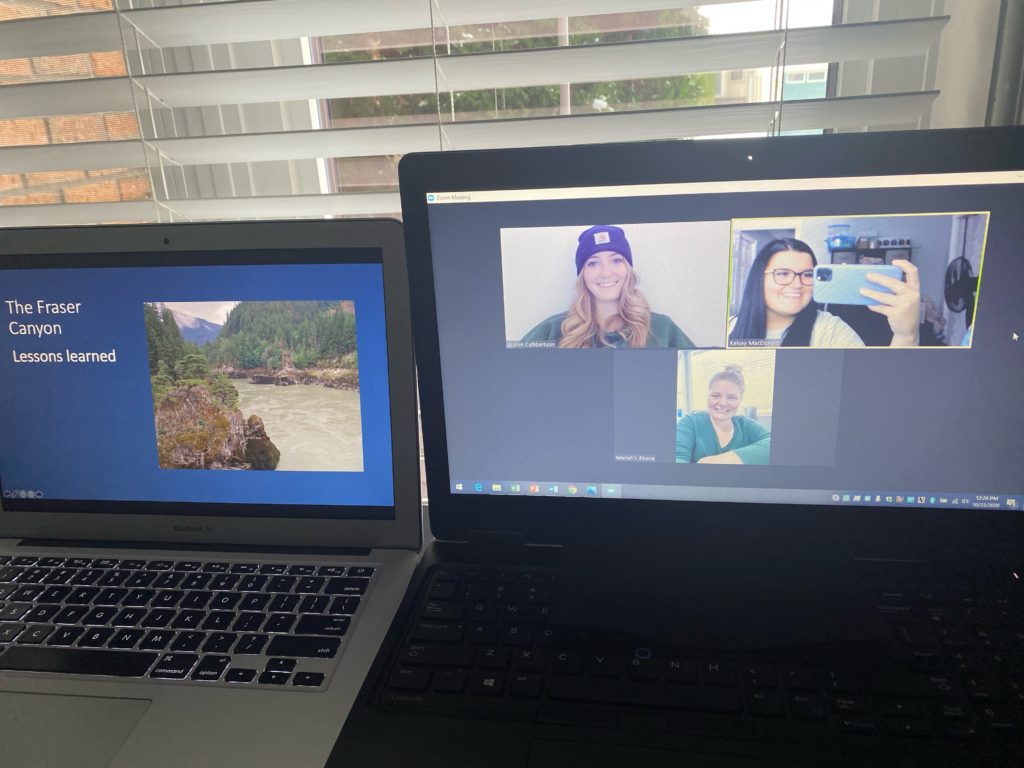Assessment and Community- We are all in the students corner.
Today I collaborated my learning with Kelsey MacDonald and Allison Cuthbertson, we attended sessions together via zoom so we could easily discuss and share our big takeaways.

I wanted to focus on one session we attended called Sharing early years wisdom as a community of practice. This session focused on the works of a group of childhood educators, primary teachers, and community partners who came together with the goal to engage in dialogue and share resources on the dynamics of transitions between early childhood education and starting elementary school. This topic interested me on a personal level as I spent 4 years working as an Early Childhood Educator Assistant and now, I have found myself following my path with heart in becoming an educator. This session touched on so many interesting points, such as, the lack of understandings when it comes to expectations of our young learners. I know when I worked in the 3-5 class at a daycare it was interesting to see the expectations the ECEs had on the children. We were teaching them letter recognition and counting, they worked on tracing their name and sounds of letters. This spring I did a practicum in a kindergarten class and I actually had the chance to see some of my students from the daycare. I talked a lot with my coaching teacher on what is expected of a student starting kindergarten and she stated the same things sated in this workshop. “We want students to be able to get their coat and shoes on by themselves, go to the washroom independently, and sit in a circle at circle time.” This shocked me because I found as ECEs we were working the kids much harder than they needed to be, we had much higher expectations. I think its important to have expectations for children at all levels however I have found that many expectations educators have and even parents have been pushed to extreme levels.
In todays workshop they mentioned how many parents were also unaware of the expectation’s kindergartner teachers have for their new students. Students come to kindergarten to be taught the ABC, how to count and so on, so as educators we need to be sharing this information with the world. This workshop talked about the “kindergarten readiness” programs that are throughout our province. It was amazing to see how they noticed this lack of understanding and communication and took it upon themselves to make and action plan and put it into play.
How does this tie to assessment? In my last journal I talked a lot about the communication and reports we give to parents and I realize now after this workshop that, that communication may need to start before we even meet the students. This is specifically relating to kindergarten teachers, and I would like to note this is a grade I am passionate about and find myself wanting to work in the future. The primary teachers in school have to work with the community they are in to inform parents about their expectations and the assessment that will be taking place in their young child’s future. When teachers are able to clearly inform parents and other workers within the community (IE Early Childhood Educators) their requirements of the students we will better be able to prepare them for the classroom. The more prepared our students are the easier they will transition into school life and therefore will be more successful in their learning. This goes hand in hand with assessment. If the community is informed of the types of assessment that will take place in the class, we can prepare our young children. For the most part assessment no longer looks like it did for the generation of parents out there. So, it is important that we teach them about formative assessment and the difference that has with summative assessment. We also should be teaching our community about what it means to differentiate the assessment and how as educators we want to reach all students on their level. I think if the public was more informed of how we assess they will be able to be an asset to the students and prepare them for what lies ahead.
Furthermore, in these primary grades I think its important as educators that we explain to people why we are assessing. Even before a child is born, they are being compared and measured to that of an “average” baby. Once they are born every parent compares their child to another and every doctor and person within that child’s life is right alongside those parents comparing. (Is my child sitting up at six months? Is my child walking at a year? Are they saying enough words?) We as educators do this to our students as soon as they start kindergarten. Can they recognize all the letters? Can they count to 20? All of these “milestones” affect us because this is why we assess them. I know fully that as a society we have placed an importance on this and it likely is not going to go away. We will be always comparing ourselves to other because I think it is in our nature. However, as educators I think it is important that we communicate to parents the reasons behind our assessment and as the teacher if you cant give a good reason as to why you are assessing a specific aspect of a students learning than you probably shouldn’t include that within your assessment.